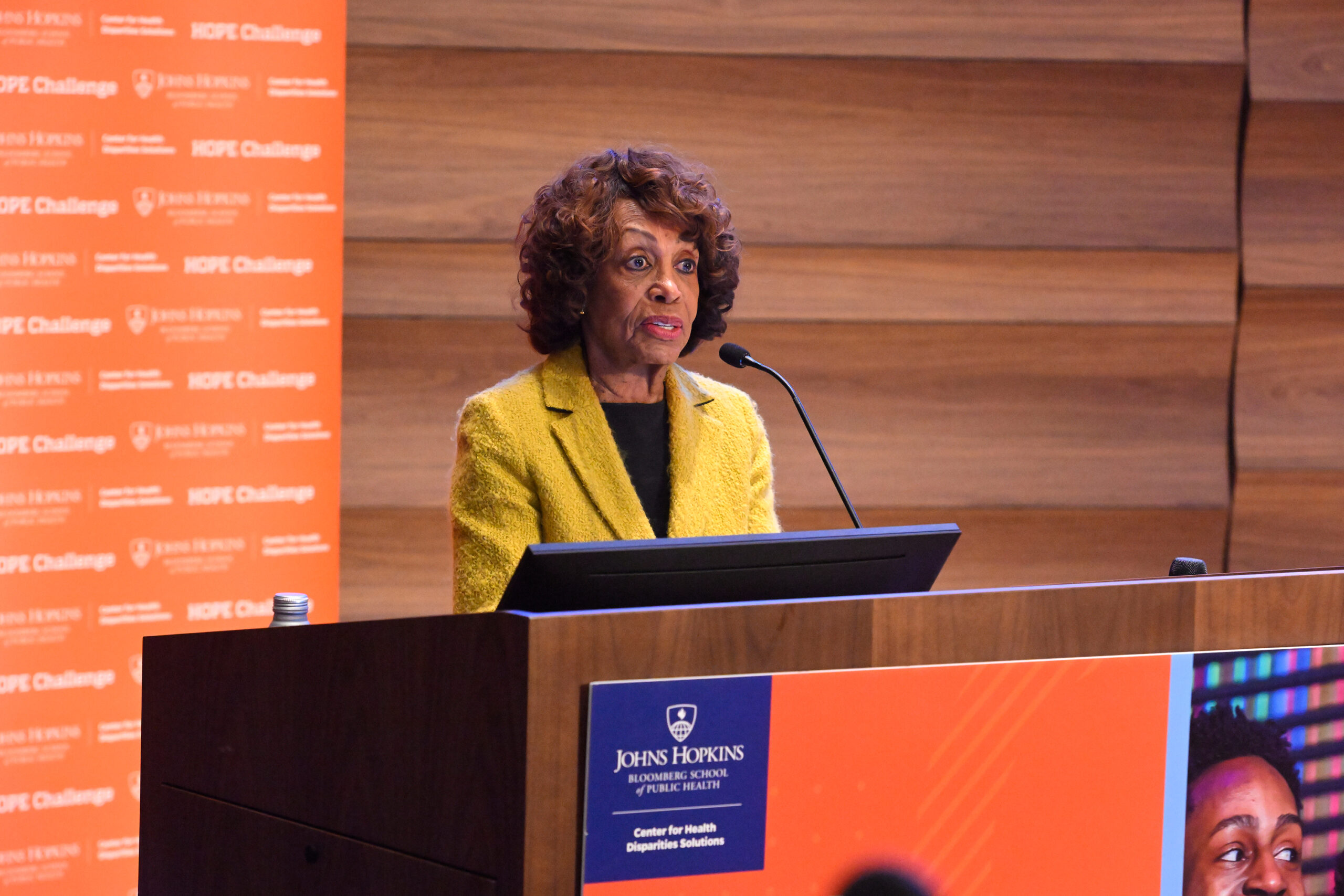25 years after the Minority AIDS Initiative, there’s still a long way to go
Rep. Maxine Waters says funds must be redirected to minority-led organizations in order to best address significant health disparities

Key Takeaways
- Twenty-five years after the creation of the Minority AIDS Initiative, massive health disparities persist among HIV cases in racial and ethnic communities.
- These disparities have been exacerbated by the long-standing, systemic inequities in our society and health care system, public health scholars said at a recent Johns Hopkins University Bloomberg Center event.
- Rep. Maxine Waters called for additional funding for minority-led organizations so they can lead this work.
Dec. 1, World AIDS Day, marked the 25th anniversary of the Minority AIDS Initiative (MAI), legislation which provided funding for minority-led organizations to address HIV disparities among racial and ethnic communities. Prior to MAI, there had been no policies to address the massive health disparities within the AIDS epidemic—disparities which persist today.
Although Black Americans make up almost 13% of the U.S. population, they account for more than 42% of new HIV cases, according to 2019 data from the Office of Minority Health. HIV rates are also higher among Latinx Americans, LGBTQ+ populations, and people living in southern states, who often have less access to health care.
The MAI was spearheaded by Rep. Maxine Waters (D-CA), and its annual funding has grown from $156 million in its first year to about $440 million each year. Yet there have been recent efforts in Congress to decrease or eliminate that funding. The George W. Bush administration also changed the initiatives’ requirements to allow funding to go to any organization that serves underrepresented populations, even if they are not minority-led.
This has diminished the ability of minority-led organizations to lead in this space, despite being the organizations with the most community trust, Waters argued at the Johns Hopkins Center for Health Disparities Solutions’ event “HIV and the Politics of Race: The Minority AIDS Initiative.”
“There’s no doubt that minority-led, community-based organizations can save lives in these communities more effectively,” Waters said, “because they’re culturally competent and understand the communities they serve.”
“There’s no doubt that minority-led, community-based organizations can save lives in these communities more effectively.”
– Rep. Maxine Waters
Scholars at the event argued minority-led organizations can play a critical role in closing long-standing health disparities. Even amid health breakthroughs like PrEP, a prescription medicine that reduces the risk of getting HIV by 99%, systematic barriers prevent the care from getting into the hands of those who need it most. An estimated 94% of white people who could benefit from PrEP have been prescribed it, while just 13% of Black people who could benefit and 24% of Hispanic/Latino people who could benefit were prescribed PrEP in 2022, according to preliminary data from the CDC.
“It’s important to understand a great medical advancement can translate into more inequity if it goes through the prism of an inequitable health care system,” said Joshua Sharfstein, vice dean for public health practice and community engagement at the Johns Hopkins Bloomberg School of Public Health, who spoke on a panel at the event. “When people don’t have access to care, then the people who can get it get help, and then people who can’t get it don’t get help.”
For Waters, a solution to these disparities is to increase funding for community-based organizations.
Further, recent political events, such as the Supreme Court ruling on affirmative action in college admissions this past summer, threaten the ability to direct funding toward certain racial groups, despite these groups experiencing clear health disparities Waters said.
“I’ve urged President Biden and his administration to redirect the initiative funds back to minority-led organizations that understand and serve these folks,” she said, “which will build capacity, improve equity, and help minorities meet the tremendous need in our communities.”